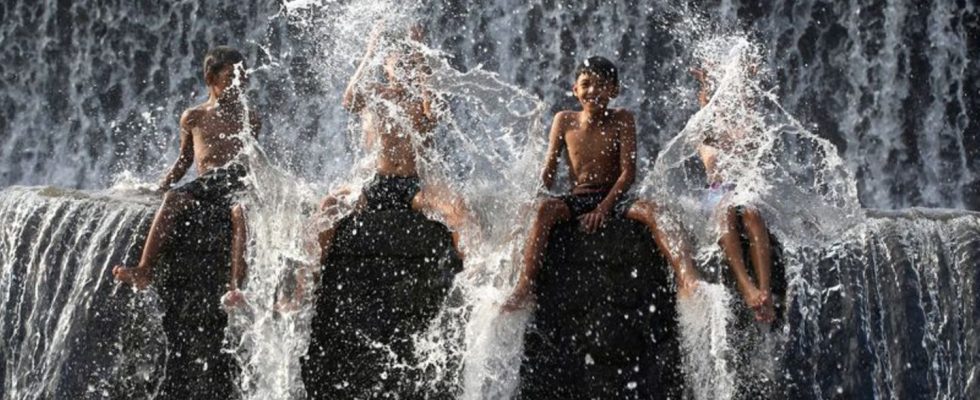World Water Day
Joint water management can bring peace
The Unda River, the second largest river on the island of Bali, is used for various activities such as tourism activities such as water rafting and agricultural irrigation activities. photo
© Firdia Lisnawati/AP/dpa
With climate change, tensions over the use of transboundary freshwater resources are rising. The German head of the UN Water Convention says what needs to be done.
Conflicts over drinking water resources are increasing worldwide, which is why the United Nations is addressing this year’s motto World Water Day also makes an appeal to societies and neighboring countries: “Water for Peace”. “Due to climate change, among other things, there is increasing water shortage, more conflicts and there is a risk that there could be wars over water in the future,” says Sonja Köppel, head of the Secretariat of the UN Water Convention, to the German Press Agency.
The 1992 convention helps neighboring countries that share water resources create common management structures to prevent conflict. According to Köppel, it is currently experiencing a boom: The convention was originally designed for the Europe and Central Asia region, but has been open to countries all over the world since 2016. Since then, the number of members has increased from 41 to 52. Another 30 countries are in the process of joining.
Example from the former Yugoslavia
“We have seen over the past years and even centuries that shared water management has played a role as a peacemaker,” she says. For example in the former Yugoslavia: The neighbors of the Sava River – Slovenia, Croatia, Bosnia-Herzegovina and Serbia – concluded an international agreement shortly after the end of the war in 2002, which included, among other things, the exchange of data on water quality and – quantity went. This has led to further cooperation, for example in the area of environmental protection. “This contributed to the pacification of the region.”
There was also closer cooperation on the management of shared rivers between Ukraine and Moldova and between Kazakhstan and Kyrgyzstan. Belarus and Lithuania also managed to develop a protocol on the management of a common river through initial technical cooperation. However, this agreement is currently on hold due to the political situation.
153 countries share water resources
153 countries worldwide share water resources with neighboring countries. Only 24 have so far made agreements with neighboring countries on all rivers and lakes in their territory. This includes Germany.
The convention is called “Convention for the Protection and Use of Transboundary Watercourses and International Lakes”. It is based in the United Nations Economic Commission for Europe (UNECE) in Geneva and helps member countries with expertise on joint agreements or adaptation to climate change. It also offers mediators who help countries resolve conflicts in the event of a dispute.

